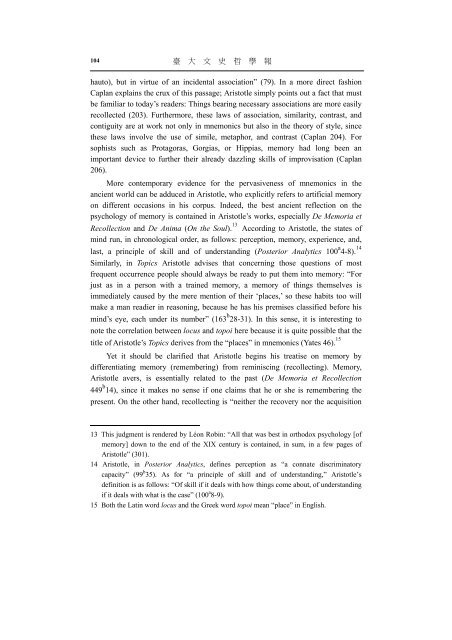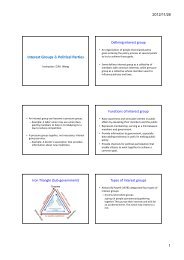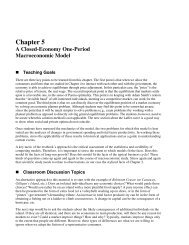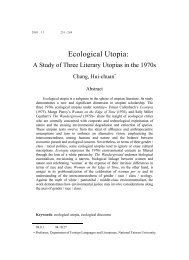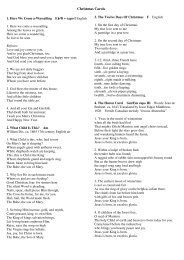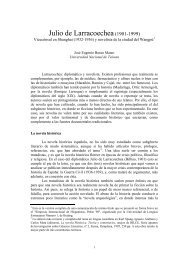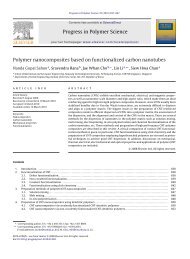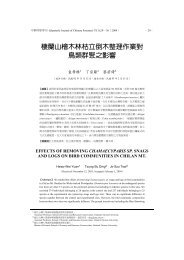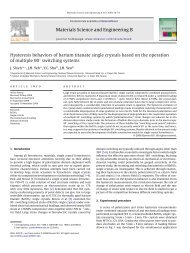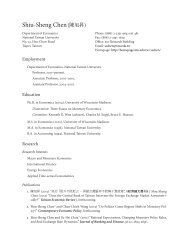Mnemonics and Bacon
Mnemonics and Bacon
Mnemonics and Bacon
You also want an ePaper? Increase the reach of your titles
YUMPU automatically turns print PDFs into web optimized ePapers that Google loves.
104<br />
臺 大 文 史 哲 學 報<br />
hauto), but in virtue of an incidental association” (79). In a more direct fashion<br />
Caplan explains the crux of this passage; Aristotle simply points out a fact that must<br />
be familiar to today’s readers: Things bearing necessary associations are more easily<br />
recollected (203). Furthermore, these laws of association, similarity, contrast, <strong>and</strong><br />
contiguity are at work not only in mnemonics but also in the theory of style, since<br />
these laws involve the use of simile, metaphor, <strong>and</strong> contrast (Caplan 204). For<br />
sophists such as Protagoras, Gorgias, or Hippias, memory had long been an<br />
important device to further their already dazzling skills of improvisation (Caplan<br />
206).<br />
More contemporary evidence for the pervasiveness of mnemonics in the<br />
ancient world can be adduced in Aristotle, who explicitly refers to artificial memory<br />
on different occasions in his corpus. Indeed, the best ancient reflection on the<br />
psychology of memory is contained in Aristotle’s works, especially De Memoria et<br />
Recollection <strong>and</strong> De Anima (On the Soul). 13 According to Aristotle, the states of<br />
mind run, in chronological order, as follows: perception, memory, experience, <strong>and</strong>,<br />
last, a principle of skill <strong>and</strong> of underst<strong>and</strong>ing (Posterior Analytics 100 a 4-8). 14<br />
Similarly, in Topics Aristotle advises that concerning those questions of most<br />
frequent occurrence people should always be ready to put them into memory: “For<br />
just as in a person with a trained memory, a memory of things themselves is<br />
immediately caused by the mere mention of their ‘places,’ so these habits too will<br />
make a man readier in reasoning, because he has his premises classified before his<br />
mind’s eye, each under its number” (163 b 28-31). In this sense, it is interesting to<br />
note the correlation between locus <strong>and</strong> topoi here because it is quite possible that the<br />
title of Aristotle’s Topics derives from the “places” in mnemonics (Yates 46). 15<br />
Yet it should be clarified that Aristotle begins his treatise on memory by<br />
differentiating memory (remembering) from reminiscing (recollecting). Memory,<br />
Aristotle avers, is essentially related to the past (De Memoria et Recollection<br />
449 b 14), since it makes no sense if one claims that he or she is remembering the<br />
present. On the other h<strong>and</strong>, recollecting is “neither the recovery nor the acquisition<br />
13 This judgment is rendered by Léon Robin: “All that was best in orthodox psychology [of<br />
memory] down to the end of the XIX century is contained, in sum, in a few pages of<br />
Aristotle” (301).<br />
14 Aristotle, in Posterior Analytics, defines perception as “a connate discriminatory<br />
capacity” (99 b 35). As for “a principle of skill <strong>and</strong> of underst<strong>and</strong>ing,” Aristotle’s<br />
definition is as follows: “Of skill if it deals with how things come about, of underst<strong>and</strong>ing<br />
if it deals with what is the case” (100 a 8-9).<br />
15 Both the Latin word locus <strong>and</strong> the Greek word topoi mean “place” in English.


